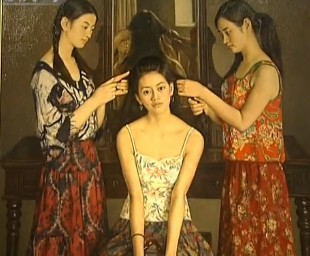Chinese Oil Paintings Biography
(Source google.com)
Chinese oil
painting and is one of China China permitted
to study art in the United
States Hunter College China
and settled in Shanghai Tibet
and his native Zhejiang
Province Ningbo
of the coastal province
of Zhejiang Shanghai
Chen graduated from the High School for Art in Shanghai United States
In 1980 Chen left his position as head of the Oil Painting
Department of the Shanghai Painting Academy
in China to explore the art
scene of New York , being one of the first
artists of the People's Republic of China
allowed out of the state to study art in the USA New York China , he
ventured to the United
States New York Hunter College
in the US Hunter College Hunter College
Chinese Oil Paintings Pintings of Nature Abstract on Canvas for Kids Scenes Love Beauty and Environment Wallpapers Easy Scenery

Chinese Oil Paintings Pintings of Nature Abstract on Canvas for Kids Scenes Love Beauty and Environment Wallpapers Easy Scenery

Chinese Oil Paintings Pintings of Nature Abstract on Canvas for Kids Scenes Love Beauty and Environment Wallpapers Easy Scenery

Chinese Oil Paintings Pintings of Nature Abstract on Canvas for Kids Scenes Love Beauty and Environment Wallpapers Easy Scenery

Chinese Oil Paintings Pintings of Nature Abstract on Canvas for Kids Scenes Love Beauty and Environment Wallpapers Easy Scenery

Chinese Oil Paintings Pintings of Nature Abstract on Canvas for Kids Scenes Love Beauty and Environment Wallpapers Easy Scenery

Chinese Oil Paintings Pintings of Nature Abstract on Canvas for Kids Scenes Love Beauty and Environment Wallpapers Easy Scenery
Chinese Oil Paintings Pintings of Nature Abstract on Canvas for Kids Scenes Love Beauty and Environment Wallpapers Easy Scenery

Chinese Oil Paintings Pintings of Nature Abstract on Canvas for Kids Scenes Love Beauty and Environment Wallpapers Easy Scenery

Chinese Oil Paintings Pintings of Nature Abstract on Canvas for Kids Scenes Love Beauty and Environment Wallpapers Easy Scenery

Chinese Oil Paintings Pintings of Nature Abstract on Canvas for Kids Scenes Love Beauty and Environment Wallpapers Easy Scenery

Chinese Oil Paintings Pintings of Nature Abstract on Canvas for Kids Scenes Love Beauty and Environment Wallpapers Easy Scenery

Chinese Oil Paintings Pintings of Nature Abstract on Canvas for Kids Scenes Love Beauty and Environment Wallpapers Easy Scenery

Chinese Oil Paintings Pintings of Nature Abstract on Canvas for Kids Scenes Love Beauty and Environment Wallpapers Easy Scenery

No comments:
Post a Comment